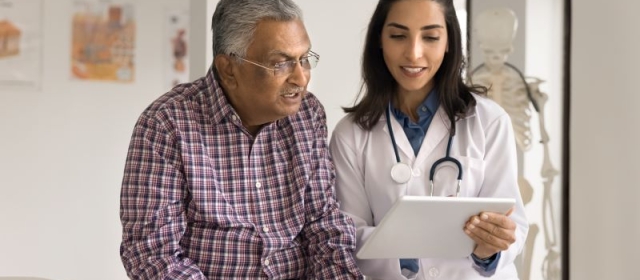
All News
Upcoming Events

Female sexual dysfunction (FSD) includes a range of conditions that can affect a woman’s sexual health and well-being. These issues are common and often treatable. Understanding the different types of FSD can help women recognize symptoms, seek help, and explore treatments that work for them. Here is an overview of the main types of FSD, along with possible treatment options.

Obsessive-compulsive disorder (OCD) is a mental health condition characterized by intrusive thoughts (obsessions) and repetitive behaviors (compulsions) aimed at reducing anxiety. While OCD is often thought of in terms of cleanliness or organization, it can also have a significant impact on a person’s sexual life. Sexual difficulties associated with OCD are common, and they can manifest in various ways, often complicating relationships and personal well-being.

Introduction
Erectile dysfunction (ED) is a common issue after prostate surgery, known as radical prostatectomy (RP), with rates varying widely between 10% and 87%. This range is due to factors like patient age, differing definitions of ED, and sometimes overly positive self-reports. ED after RP significantly impacts quality of life and can contribute to depression, as it affects men’s sense of self and masculinity.

Pornography use has risen significantly in recent years, with the internet making it easily accessible, affordable, and anonymous. For some, pornography is a casual activity, but for others, it can become a compulsive habit known by some experts as problematic pornography use (PPU). PPU can lead to negative impacts like depression, anxiety, relationship issues, and financial problems.

Menopause is a natural biological process that marks the end of a woman’s reproductive years, typically occurring between the ages of 45 and 55. However, the transition to menopause begins years earlier during a phase called perimenopause. This article will explore the symptoms associated with both perimenopause and menopause, helping to clarify this important life stage.

Premature ejaculation (PE) is a common sexual disorder affecting 14% to 30% of men. It can be categorized into four types: Lifelong PE (LPE), where ejaculation happens within 1 minute; Acquired PE (APE), where ejaculation time decreases to 3 minutes or less; Variable PE (VPE), where timing is inconsistent; and Subjective PE (SPE), where men feel they ejaculate quickly, but timing is normal.

Your sex drive, or libido, is influenced by many factors, including physical health, hormones, and emotional well-being. One aspect that people may not always consider is the role of diet. Can what you eat really impact your sex drive? The answer is yes. Certain foods can either support or harm your sexual health. Here’s how diet can play a part in enhancing or reducing libido.

During adolescence, people go through important physical and emotional changes as they discover their sexual identities and learn to navigate social relationships. This period is marked by curiosity and a desire for new experiences, but it also comes with the need for caution to avoid risky behaviors.

Gender-affirming therapy can be life-changing for transgender and gender non-conforming individuals, offering physical and emotional benefits by helping people align their bodies with their gender identity. But how does this care impact general health? Understanding the effects of gender-affirming therapy, both the positive effects and potential challenges, can help individuals make informed decisions about their health and well-being.

Hypoactive sexual desire disorder (HSDD) and female sexual arousal disorder (FSAD) are common issues for many women, affecting their desire for sexual activity. HSDD is when a woman has little or no motivation for sexual activity, including a lack of sexual thoughts, difficulty responding to sexual cues, or avoiding sexual situations altogether. It often causes distress, frustration, or sadness. FSAD involves trouble becoming or staying aroused during sexual activity. These conditions can happen together, making things even more challenging.

Anorgasmia is a condition where an individual has difficulty reaching orgasm, even with adequate sexual stimulation. For those experiencing this issue, it can feel frustrating and emotionally distressing. To address the condition effectively, it’s essential to recognize its signs and know how to collaborate with healthcare providers for proper support and treatment.


